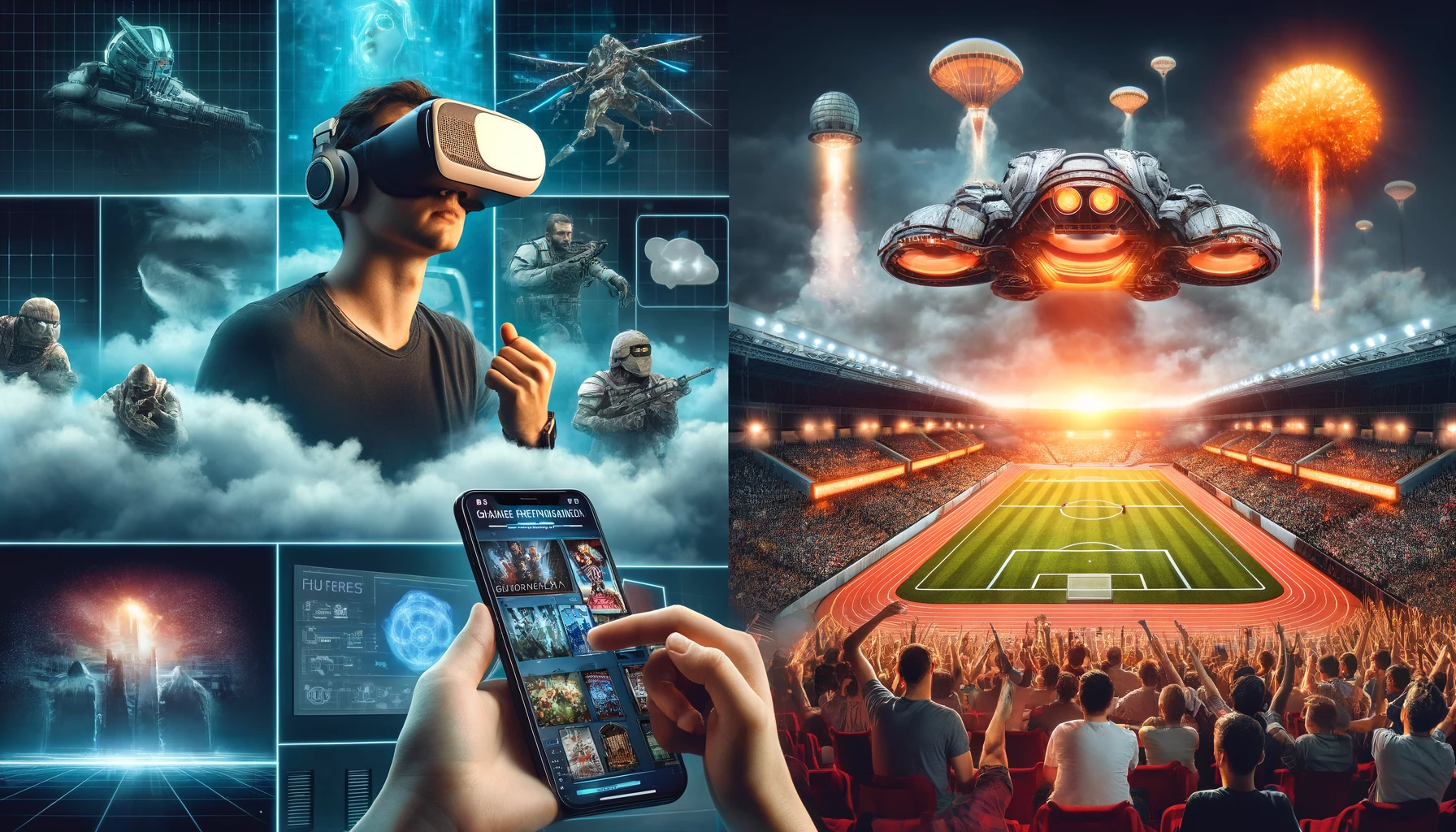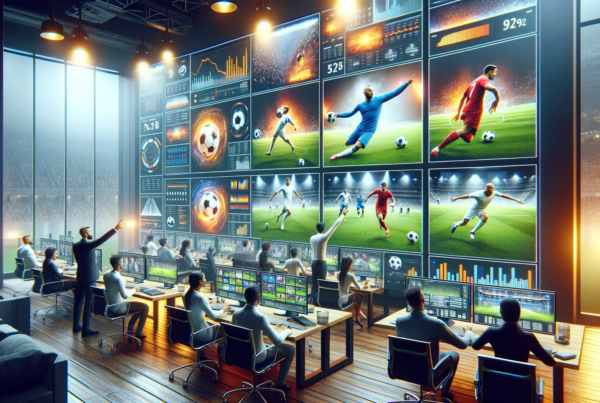Introduction to the Evolving Gaming Landscape
The gaming industry stands at the forefront of technological innovation and creative storytelling, consistently pushing the boundaries of interactive entertainment. As we look towards the future, it is clear that the industry is poised for even more groundbreaking developments. This article delves into the trends and transformations defining the future of entertainment in the gaming industry, offering a roadmap for businesses and enthusiasts alike to navigate this dynamic domain.
With advancements in hardware, software, and networking technologies, the gaming industry is rapidly evolving. The integration of virtual reality (VR), augmented reality (AR), and artificial intelligence (AI) has begun to create immersive experiences that were once the realm of science fiction. Moreover, the rise of cloud gaming and the proliferation of mobile gaming have democratized access to high-quality gaming experiences, transcending traditional platform limitations.
As the industry continues to expand, it becomes imperative for businesses within this space to understand the trajectory of these trends and adapt their strategies accordingly. This exploration will not only highlight the technological innovations but also consider the social and economic impacts they entail, providing a comprehensive overview of what lies ahead for gaming entertainment.
Technological Innovations Reshaping Gaming
Virtual Reality and Augmented Reality: The New Frontiers
The integration of VR and AR into gaming has opened up new possibilities for player immersion. VR headsets like the Oculus Rift and HTC Vive have already shown us the potential for deeply engaging gaming experiences. Similarly, AR games such as Pokémon Go have demonstrated the ability to blend the digital and physical worlds, creating interactive experiences that extend beyond the screen. As these technologies mature, we can expect them to become more prevalent, offering gamers experiences that are not only entertaining but also increasingly lifelike and interactive.
Advancements in haptic feedback technology are also enhancing the tactile dimension of gaming, allowing players to feel more connected to the virtual environments they inhabit. This sensory augmentation is likely to become a standard feature in the next generation of gaming devices, further blurring the lines between the real and the virtual.
Artificial Intelligence: The Game Changer
AI is another transformative technology that is redefining the gaming industry. Beyond its role in creating more realistic non-player characters (NPCs), AI is being used to tailor gaming experiences to individual players, learning from their behaviors and preferences to adjust difficulty levels and narrative paths in real-time. This personalization is not only enhancing player engagement but also opening up new avenues for adaptive storytelling within games.
Furthermore, AI-driven analytics are providing developers and publishers with insights into player behavior, enabling them to optimize their games and marketing strategies more effectively. This data-centric approach to game development is likely to become increasingly important as the industry becomes more competitive.
Market Dynamics and Consumer Behavior
Cloud Gaming: Accessibility and Convenience
Cloud gaming services like Google Stadia and Xbox Cloud Gaming are revolutionizing the way we access and play games. By streaming games directly from the cloud, these services eliminate the need for expensive hardware, making gaming more accessible to a broader audience. This shift towards cloud-based platforms is expected to continue, with implications for both the distribution of games and the business models that underpin the industry.
The subscription-based model, in particular, is gaining traction, offering players a vast library of games for a monthly fee. This approach is not only convenient for consumers but also provides a steady revenue stream for developers and publishers. As more gamers embrace this model, it is likely to reshape the economics of game development and distribution.
Esports and Competitive Gaming: The Spectacle of Play
Esports have transformed gaming from a solitary pastime into a spectator sport, with millions of viewers tuning in to watch professional gamers compete. The competitive gaming scene has not only created new opportunities for player fame and fortune but also for businesses looking to engage with a dedicated and passionate audience. The continued growth of esports is anticipated to drive innovation in live streaming technology, event management, and community engagement, further cementing its place in the entertainment landscape.
Conclusion: Embracing the Future
The gaming industry is at an inflection point, with technological advancements and changing consumer behaviors shaping a new era of entertainment. As we have explored, the integration of VR, AR, and AI, along with the rise of cloud gaming and esports, are just a few of the trends that are defining the future of entertainment in the gaming industry. For businesses and gamers alike, staying informed and adaptable will be key to thriving in this exciting and ever-evolving market.
As the industry continues to innovate and expand, it will be crucial to monitor these developments and understand their implications. From creating more immersive gaming experiences to redefining how games are distributed and monetized, the future holds a wealth of opportunities for those ready to embrace the changes. The gaming industry’s journey is far from over, and its next chapters are sure to be as compelling as the games it produces.








